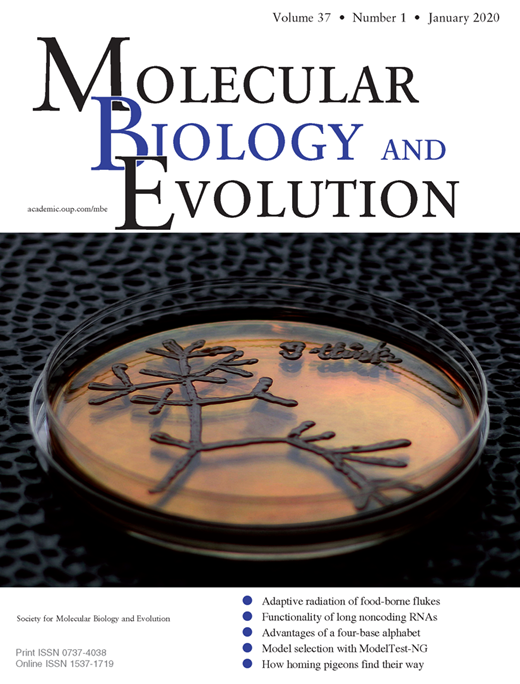Measuring the Efficiency of Purging by non-random Mating in Human Populations.
IF 11
1区 生物学
Q1 BIOCHEMISTRY & MOLECULAR BIOLOGY
引用次数: 0
Abstract
Human populations harbor a high concentration of deleterious genetic variants. Here, we tested the hypothesis that non-random mating practices affect the distribution of these variants, through exposure in the homozygous state, leading to their purging from the population gene pool. To do so, we produced whole-genome sequencing data for two pairs of Asian populations exhibiting different alliance rules and rates of inbreeding, but with similar effective population sizes. The results show that populations with higher rates of inbred matings do not purge deleterious variants more efficiently. Purging therefore has a low efficiency in human populations, and different mating practices lead to a similar mutational load.
衡量人类种群中通过非随机交配进行净化的效率。
人类群体中存在大量有害基因变异体。在这里,我们检验了这样一个假设:非随机交配行为会影响这些变异体的分布,通过暴露于同源状态,导致它们从种群基因库中清除。为此,我们制作了两对亚洲种群的全基因组测序数据,这两对种群表现出不同的联盟规则和近交率,但有效种群规模相似。结果表明,近亲交配率较高的种群并不能更有效地清除有害变异。因此,人类种群的净化效率较低,不同的交配方式会导致相似的变异负荷。关键词:净化选择、亲缘关系、择偶、近亲繁殖、基因组学、有害变异、变异负荷。
本文章由计算机程序翻译,如有差异,请以英文原文为准。
求助全文
约1分钟内获得全文
求助全文
来源期刊

Molecular biology and evolution
生物-进化生物学
CiteScore
19.70
自引率
3.70%
发文量
257
审稿时长
1 months
期刊介绍:
Molecular Biology and Evolution
Journal Overview:
Publishes research at the interface of molecular (including genomics) and evolutionary biology
Considers manuscripts containing patterns, processes, and predictions at all levels of organization: population, taxonomic, functional, and phenotypic
Interested in fundamental discoveries, new and improved methods, resources, technologies, and theories advancing evolutionary research
Publishes balanced reviews of recent developments in genome evolution and forward-looking perspectives suggesting future directions in molecular evolution applications.
 求助内容:
求助内容: 应助结果提醒方式:
应助结果提醒方式:


